Welcome to Zhuoliou industry co.,ltd
Apple chip supervisor, rare response to everything
3/9/2023 11:11:30 AM
Recently, John Srouji, the head of Apple chips, and John Ternus, the senior vice president of hardware engineering, conducted a highly informative conversation with CNBC journalist Katie Tarasov.
They elaborated on Apple's self-developed chip plan, responding to questions such as how the Apple chip team collaborates, whether Apple wants to take control of everything in the chip, why it is fully transitioning to self-developed computer chips, why the performance of the M1 chip was compared when the M3 was released, and whether Apple's talent loss has led to a slowdown in its development.
During the conversation, Srouji repeatedly emphasized that Apple is not a chip company and has not attempted to compete with chip suppliers. Its desire is to create the best products in the world, including ensuring the manufacture of the best chips. For this reason, Apple hopes to develop the best technology to achieve this vision. If it can buy ready-made technology that can achieve its product goals, Apple will buy it, so that it can focus on what is truly important and maximize Apple's benefits.
For some "overly sensitive" issues, such as whether to rely on NVIDIA chips, the progress of self-developed baseband chips, and the transaction with Qualcomm baseband chips, Srouji avoids the issue by directly interrupting or avoiding the topic.
For example, when a journalist asks, "Is AI running on devices the future of generative AI that Apple sees?" Srouji avoids saying, "We can't talk about the future."
When the reporter asked, "Do you rely on Nvidia's products? Do you buy Nvidia?" He quickly interrupted the question again, "We cannot discuss."
When asked by reporters about what happened to Apple's baseband chips and why they announced an extension of their baseband chip deal with Qualcomm, he vaguely stated that connectivity is extremely important for Apple devices, and that Apple has a strong internal team dedicated to enabling technology to enhance its products.
"But I really can't give you too many comments about future technologies and products. The reason is obvious. We care about phones, we have a team to achieve this, we work with Qualcomm, and in the past we have worked with other companies to make our competition possible." Srouji said.
Two Apple executives first gave a brief self introduction.
John Srouji joined Apple in March 2008 as Vice President of Hardware Technology Center, responsible for developing chips for the iPhone. At first, the team consisted of only about forty to fifty engineers, but quickly grew and made several strategically significant acquisitions, helping Apple achieve its goal of independently developing chips.
"For the past 15 years, we have been building a world-class team, 100% focused on manufacturing the best chips for our products. This is a journey that I love," said Srouji.
John Ternus, Senior Vice President of Apple Hardware Engineering, has been at Apple since 2001 and has been involved in almost all types of products produced by Apple, with a very close partnership with Srouji.
As early as 2008, Apple decided to make things it couldn't buy on the market on its own. Apple's vision drives it to make efforts to own and control chips. On the basis of having integrated hardware, software, and operating systems, the decision to develop a self-developed chip has taken Apple one step forward.
Apple's hardware, chips, technology, and software work closely together as a team to optimize the integrated products built solely for the product. Together, they develop chips three or four years in advance, and then the chip team can freely innovate and fully optimize software. Srouji said that with this advantage, Apple is not worried about some voices who believe that Apple seems to be lagging behind in AI.
He emphasized that Apple is a product company, which gives the team the freedom to innovate and invest in the long term according to their needs. Apple values the quality of its engineers, and if the cost of running and manufacturing chips is compared to the products Apple owns, it is a good deal.
The Apple chip team has built a unified memory architecture that can scale across products (iPhone, iPad, Apple Watch, Mac), and the architecture of different products is similar. Srouji believes that this is important for the efficiency of chip, product, hardware, and software teams.
Ternus said that Apple initially tended to use technology from other companies when making products, but faced some limitations. "I believe that one of the most profound changes for Apple over the past 20 years has undoubtedly been in our products, which is how we develop these technologies internally, and most importantly, the chips." He added, "What we are considering is how to combine all these parts to provide our customers with the best products."
When asked if there was a slowdown in development due to talent loss, Srouji replied that Apple has thousands of engineers in the United States, Europe, and Israel, and world-class teams to manufacture these chips. Apple has a deep talent, skills, and leadership ability to lead these teams and will continue to hire the best talents, whether they are college students or experienced individuals.
He said that many times, people may choose to change companies for various reasons. But he doesn't think there's any problem with Apple, because Apple is still recruiting the best talents and wants to bring them back. He feels immensely proud of the Apple team. "If you see any progress we have made in this field, it is a reflection of the organization we have established, and it is even stronger," he said.
In recent years, Qualcomm's self-developed CPU core design capabilities have greatly enhanced, which cannot be separated from the acquisition of chip startup NUVIA in 2021. And the founder of NUVIA, Gerard Williams III, was originally the designer of Apple's A-series mobile phone chips and worked at Apple for 9 years. He was sued by Apple for breach of contract six months after leaving.
As for what led Apple to abandon its lawsuit against Gerard Williams at NUVIA, Srouji replied, "We have excellent engineers developing amazing technology and chips that are difficult to manufacture. So we truly care about intellectual property protection. Besides, I cannot discuss legal issues, but we do care about intellectual property protection. When someone leaves for some reason, it's their choice, it's okay."
Apple has a team building storage controllers for NAND memory and embedding them into system level chips. The reason for doing so is that Apple not only cares about taking the best photos, but also about the durability of storage devices, hoping to provide the best, most reliable, and fastest storage. Meanwhile, up to 128GB of DRAM memory capacity and 400GB/s bandwidth enable devices to run machine learning locally.
Srouji said that running AI, machine learning, or generative AI on a device requires three points: computation, DRAM capacity, and DRAM bandwidth. In terms of computing, it can be traced back to the release of biomimetic chips in 2017. Apple has developed its own machine learning engine, which is the most energy-efficient computing element for some workloads.
When asked by reporters if Apple users care if the chips they use on their devices come from Apple, Srouji believes they care because Apple is not a chip company and has a world-class chip team. Chip designers are free to design the heat sealed shell, shape, software, and how to use the product without affecting the design, providing the best power efficiency chips in the class with rich functions, Provide a customer experience through predictable execution and early betting.
"Only Apple can do it because we are united," he repeatedly emphasized. "We are not a chip company, we are a product company. Therefore, our guiding principle is to provide technology that can achieve the best products. This is how we operate."
In his view, the iPhone can be seen as a constraint, and this is their "best friend". "I have always believed that constraints can create great engineering. By doing so, we must create a very energy-efficient architecture that leverages our strengths when we start expanding to iPads and Macs," Srouji said.
He also mentioned that Apple will focus on every IP, and from the beginning, Apple was clear that it was not possible to create each IP on its own, so it was very focused on its differentiation, starting from one authorized project at a time, and building one after another, until today it has all these first-class technologies.
"I think Mac has provided us with a very interesting turning point because it's a product we've been developing with someone else's chip for years, and then suddenly we have our own." He shared, "In my opinion, when we started using Apple's chips on Mac, for those of us who have been engaged in computer manufacturing for a long time, it was almost like a change in the laws of physics."
He believes that even customers who may not necessarily be using self-developed chips at Apple will fundamentally see a completely different computer experience.
"The reason we decided to transfer the Mac to our chips is because we want to create better products that allow us to create the products we want without compromising," said Srouji, who has always believed that it should not be limited by imagination or our vision of building things. Apple is pushing the limits, which will translate into better machines that customers will like.
Another highly anticipated issue is that Apple compared the performance of M3 and M1 at the launch event, rather than M2. Srouji responded, "We want to start by comparing our transformation. In our video, the chart shows a comparison of M1 and M2 on other systems, but we want to focus on M1. Therefore, we only focus on one chip, but the progress compared to M1 and M2 is huge. So this is an information focused issue, they are all there."
In his view, this is actually one of Apple's strengths because Apple is not a chip company, so there is no need to worry about where to sell chips. Therefore, it is important to use valuable transistors wisely and effectively, considering how the product will benefit and how software will use it. "I believe this is the way we make progress faster than anyone else," Srouji said.
As for the chip shortage, he said that Apple can solve similar problems by working closely with its foundry partners in advance. But he refused to answer about the 3nm production, only mentioning that Apple's latest Mac chip series (M3, M3 Max, etc.) is working with its partners, believing that they have the technology and ability to handle Apple's business.
Regarding previous rumors that iPhone 15 overheating may be caused by the 3nm chip, Srouji briefly replied, "As far as I know, there is no such issue." Ternus added that the overheating issue is not related to the chip, and the issue has been resolved. Apple has fixed this bug with a software update.
So, what risks does becoming the first company to push 3nm chips to the market face? Srouji believes that risks exist, which is why the best team collaboration between both parties is needed, whether it is the wafer foundry team or the design team. There is no regret medicine in chip design, and once vulnerabilities are discovered later, a large amount of cost will be spent on fixing them. Therefore, the Apple team is very cautious when designing chips, confirming that everything must go through strict inspections.
"If you don't have the best team, you won't be able to achieve these goals, but there is a risk involved," Srouji said. The results are already good enough to calculate the risk with substantial returns.
Srouji is very excited about the chip manufacturing project in Arizona and believes that Apple has always supported the development of advanced manufacturing in the United States and has always supported having more silicon expertise in the United States.
"We have thousands of engineers in the United States, as well as in Europe, Israel, and other places, but we only hire the best talent in the United States," Srouji said. "We also collaborate with universities on courses to prepare their students, the next generation of engineers, and we encourage our partners to expand their manufacturing capabilities in the United States, so I think this is exciting.". This is a great move. "
When asked how to view the urgency of the concentration of advanced chip manufacturing in Taiwan, China, Srouji said that Apple hopes to have a diversified supply and always hopes to provide and manufacture the best chips in the world for the best products, which means that it needs to use the best tools and technology, have a wafer factory with this technology, and also hope to have a partner with consistent goals, reliable implementation and delivery, It can be expanded according to Apple's needs.
Srouji gave high praise to TSMC, stating that a large portion of Apple's internal chips are provided by TSMC. Apple has been working with TSMC for over a decade and they have always been reliable.
But he also added that Apple always explores various options and wants to obtain the best technology. If some contract factories have and meet Apple's requirements, Apple will also try them out.
In response, Srouji said, "I cannot answer about future plans, but what I can say is that I fully support what you said. We always look forward. We have strategic bets, and we are very cautious about our plans."
They elaborated on Apple's self-developed chip plan, responding to questions such as how the Apple chip team collaborates, whether Apple wants to take control of everything in the chip, why it is fully transitioning to self-developed computer chips, why the performance of the M1 chip was compared when the M3 was released, and whether Apple's talent loss has led to a slowdown in its development.
During the conversation, Srouji repeatedly emphasized that Apple is not a chip company and has not attempted to compete with chip suppliers. Its desire is to create the best products in the world, including ensuring the manufacture of the best chips. For this reason, Apple hopes to develop the best technology to achieve this vision. If it can buy ready-made technology that can achieve its product goals, Apple will buy it, so that it can focus on what is truly important and maximize Apple's benefits.
For some "overly sensitive" issues, such as whether to rely on NVIDIA chips, the progress of self-developed baseband chips, and the transaction with Qualcomm baseband chips, Srouji avoids the issue by directly interrupting or avoiding the topic.
For example, when a journalist asks, "Is AI running on devices the future of generative AI that Apple sees?" Srouji avoids saying, "We can't talk about the future."
When the reporter asked, "Do you rely on Nvidia's products? Do you buy Nvidia?" He quickly interrupted the question again, "We cannot discuss."
When asked by reporters about what happened to Apple's baseband chips and why they announced an extension of their baseband chip deal with Qualcomm, he vaguely stated that connectivity is extremely important for Apple devices, and that Apple has a strong internal team dedicated to enabling technology to enhance its products.
"But I really can't give you too many comments about future technologies and products. The reason is obvious. We care about phones, we have a team to achieve this, we work with Qualcomm, and in the past we have worked with other companies to make our competition possible." Srouji said.
Here are some useful information from this conversation:
Two Apple executives first gave a brief self introduction.
John Srouji joined Apple in March 2008 as Vice President of Hardware Technology Center, responsible for developing chips for the iPhone. At first, the team consisted of only about forty to fifty engineers, but quickly grew and made several strategically significant acquisitions, helping Apple achieve its goal of independently developing chips.
"For the past 15 years, we have been building a world-class team, 100% focused on manufacturing the best chips for our products. This is a journey that I love," said Srouji.
John Ternus, Senior Vice President of Apple Hardware Engineering, has been at Apple since 2001 and has been involved in almost all types of products produced by Apple, with a very close partnership with Srouji.
As early as 2008, Apple decided to make things it couldn't buy on the market on its own. Apple's vision drives it to make efforts to own and control chips. On the basis of having integrated hardware, software, and operating systems, the decision to develop a self-developed chip has taken Apple one step forward.
Apple's hardware, chips, technology, and software work closely together as a team to optimize the integrated products built solely for the product. Together, they develop chips three or four years in advance, and then the chip team can freely innovate and fully optimize software. Srouji said that with this advantage, Apple is not worried about some voices who believe that Apple seems to be lagging behind in AI.
He emphasized that Apple is a product company, which gives the team the freedom to innovate and invest in the long term according to their needs. Apple values the quality of its engineers, and if the cost of running and manufacturing chips is compared to the products Apple owns, it is a good deal.
The Apple chip team has built a unified memory architecture that can scale across products (iPhone, iPad, Apple Watch, Mac), and the architecture of different products is similar. Srouji believes that this is important for the efficiency of chip, product, hardware, and software teams.
Ternus said that Apple initially tended to use technology from other companies when making products, but faced some limitations. "I believe that one of the most profound changes for Apple over the past 20 years has undoubtedly been in our products, which is how we develop these technologies internally, and most importantly, the chips." He added, "What we are considering is how to combine all these parts to provide our customers with the best products."
2\ Talking about Talent Loss: Continuing to Hire the Best Talents and Responding to Stopping the Prosecution of NUVIA Founders
Now, Apple has thousands of engineers researching chips.When asked if there was a slowdown in development due to talent loss, Srouji replied that Apple has thousands of engineers in the United States, Europe, and Israel, and world-class teams to manufacture these chips. Apple has a deep talent, skills, and leadership ability to lead these teams and will continue to hire the best talents, whether they are college students or experienced individuals.
He said that many times, people may choose to change companies for various reasons. But he doesn't think there's any problem with Apple, because Apple is still recruiting the best talents and wants to bring them back. He feels immensely proud of the Apple team. "If you see any progress we have made in this field, it is a reflection of the organization we have established, and it is even stronger," he said.
In recent years, Qualcomm's self-developed CPU core design capabilities have greatly enhanced, which cannot be separated from the acquisition of chip startup NUVIA in 2021. And the founder of NUVIA, Gerard Williams III, was originally the designer of Apple's A-series mobile phone chips and worked at Apple for 9 years. He was sued by Apple for breach of contract six months after leaving.
As for what led Apple to abandon its lawsuit against Gerard Williams at NUVIA, Srouji replied, "We have excellent engineers developing amazing technology and chips that are difficult to manufacture. So we truly care about intellectual property protection. Besides, I cannot discuss legal issues, but we do care about intellectual property protection. When someone leaves for some reason, it's their choice, it's okay."
3\ Talking about chip layout: Apple doesn't want to pursue "fully self-developed", everything is for product experience
Does Apple want to control every part of the chip? Srouji denied it, explaining that Apple wants to control aspects that can support the product, but will not control things for internal layout, which is not Apple's genes.Apple has a team building storage controllers for NAND memory and embedding them into system level chips. The reason for doing so is that Apple not only cares about taking the best photos, but also about the durability of storage devices, hoping to provide the best, most reliable, and fastest storage. Meanwhile, up to 128GB of DRAM memory capacity and 400GB/s bandwidth enable devices to run machine learning locally.
Srouji said that running AI, machine learning, or generative AI on a device requires three points: computation, DRAM capacity, and DRAM bandwidth. In terms of computing, it can be traced back to the release of biomimetic chips in 2017. Apple has developed its own machine learning engine, which is the most energy-efficient computing element for some workloads.
When asked by reporters if Apple users care if the chips they use on their devices come from Apple, Srouji believes they care because Apple is not a chip company and has a world-class chip team. Chip designers are free to design the heat sealed shell, shape, software, and how to use the product without affecting the design, providing the best power efficiency chips in the class with rich functions, Provide a customer experience through predictable execution and early betting.
"Only Apple can do it because we are united," he repeatedly emphasized. "We are not a chip company, we are a product company. Therefore, our guiding principle is to provide technology that can achieve the best products. This is how we operate."
In his view, the iPhone can be seen as a constraint, and this is their "best friend". "I have always believed that constraints can create great engineering. By doing so, we must create a very energy-efficient architecture that leverages our strengths when we start expanding to iPads and Macs," Srouji said.
He also mentioned that Apple will focus on every IP, and from the beginning, Apple was clear that it was not possible to create each IP on its own, so it was very focused on its differentiation, starting from one authorized project at a time, and building one after another, until today it has all these first-class technologies.
4\ Talking about self-developed Mac chips: This is an interesting turning point, Apple is pushing the limits
Ternus said, "Our goal is to focus our best products on key things, which will enable us to do something unique and great.""I think Mac has provided us with a very interesting turning point because it's a product we've been developing with someone else's chip for years, and then suddenly we have our own." He shared, "In my opinion, when we started using Apple's chips on Mac, for those of us who have been engaged in computer manufacturing for a long time, it was almost like a change in the laws of physics."
He believes that even customers who may not necessarily be using self-developed chips at Apple will fundamentally see a completely different computer experience.
"The reason we decided to transfer the Mac to our chips is because we want to create better products that allow us to create the products we want without compromising," said Srouji, who has always believed that it should not be limited by imagination or our vision of building things. Apple is pushing the limits, which will translate into better machines that customers will like.
Another highly anticipated issue is that Apple compared the performance of M3 and M1 at the launch event, rather than M2. Srouji responded, "We want to start by comparing our transformation. In our video, the chart shows a comparison of M1 and M2 on other systems, but we want to focus on M1. Therefore, we only focus on one chip, but the progress compared to M1 and M2 is huge. So this is an information focused issue, they are all there."
5\ On Chip Manufacturing: 3nm Capacity, TSMC Cooperation, and Geopolitical Conflict Reserve Plan
How to view the maintenance of Moore's Law is a long-standing topic in the chip industry. Srouji believes that measuring the progress made by chips can be summarized into three indicators: transistor density, performance, and energy efficiency. Compared to 10 years ago, improving these capabilities has become increasingly difficult.In his view, this is actually one of Apple's strengths because Apple is not a chip company, so there is no need to worry about where to sell chips. Therefore, it is important to use valuable transistors wisely and effectively, considering how the product will benefit and how software will use it. "I believe this is the way we make progress faster than anyone else," Srouji said.
As for the chip shortage, he said that Apple can solve similar problems by working closely with its foundry partners in advance. But he refused to answer about the 3nm production, only mentioning that Apple's latest Mac chip series (M3, M3 Max, etc.) is working with its partners, believing that they have the technology and ability to handle Apple's business.
Regarding previous rumors that iPhone 15 overheating may be caused by the 3nm chip, Srouji briefly replied, "As far as I know, there is no such issue." Ternus added that the overheating issue is not related to the chip, and the issue has been resolved. Apple has fixed this bug with a software update.
So, what risks does becoming the first company to push 3nm chips to the market face? Srouji believes that risks exist, which is why the best team collaboration between both parties is needed, whether it is the wafer foundry team or the design team. There is no regret medicine in chip design, and once vulnerabilities are discovered later, a large amount of cost will be spent on fixing them. Therefore, the Apple team is very cautious when designing chips, confirming that everything must go through strict inspections.
"If you don't have the best team, you won't be able to achieve these goals, but there is a risk involved," Srouji said. The results are already good enough to calculate the risk with substantial returns.
Srouji is very excited about the chip manufacturing project in Arizona and believes that Apple has always supported the development of advanced manufacturing in the United States and has always supported having more silicon expertise in the United States.
"We have thousands of engineers in the United States, as well as in Europe, Israel, and other places, but we only hire the best talent in the United States," Srouji said. "We also collaborate with universities on courses to prepare their students, the next generation of engineers, and we encourage our partners to expand their manufacturing capabilities in the United States, so I think this is exciting.". This is a great move. "
When asked how to view the urgency of the concentration of advanced chip manufacturing in Taiwan, China, Srouji said that Apple hopes to have a diversified supply and always hopes to provide and manufacture the best chips in the world for the best products, which means that it needs to use the best tools and technology, have a wafer factory with this technology, and also hope to have a partner with consistent goals, reliable implementation and delivery, It can be expanded according to Apple's needs.
Srouji gave high praise to TSMC, stating that a large portion of Apple's internal chips are provided by TSMC. Apple has been working with TSMC for over a decade and they have always been reliable.
But he also added that Apple always explores various options and wants to obtain the best technology. If some contract factories have and meet Apple's requirements, Apple will also try them out.
In response, Srouji said, "I cannot answer about future plans, but what I can say is that I fully support what you said. We always look forward. We have strategic bets, and we are very cautious about our plans."
Blog Category
NewsLatest Products
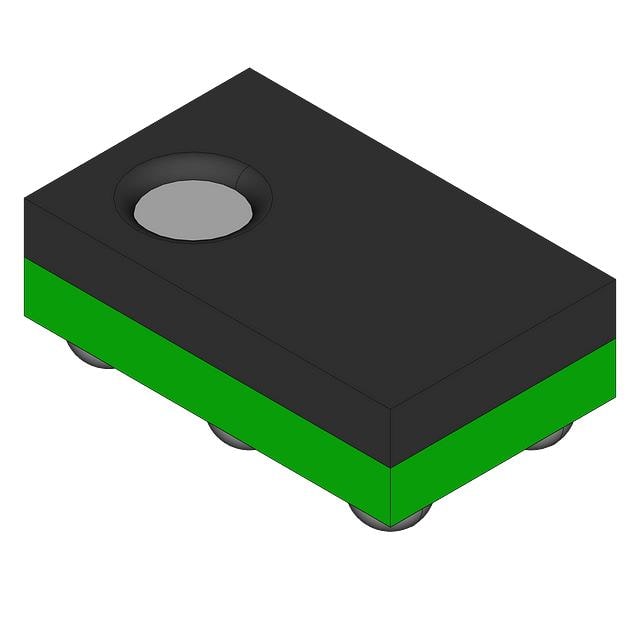
-
IP5002CX8/P135
NXP USA Inc.
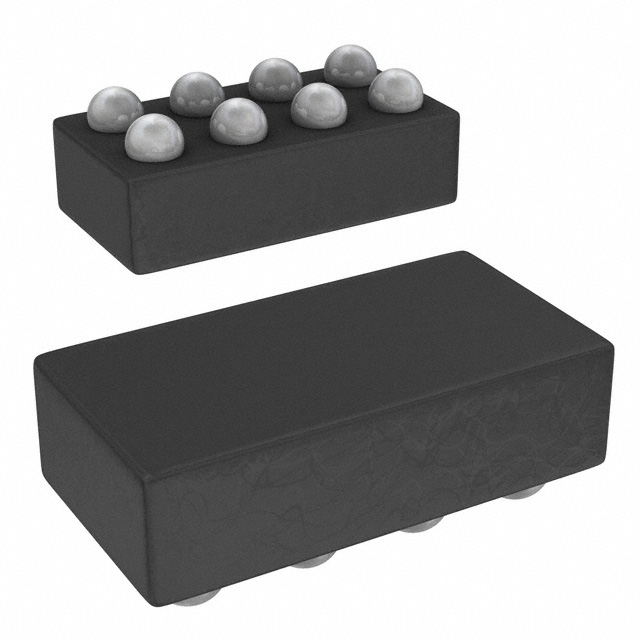
-
ADAU7002ACBZ-RL
Analog Devices Inc.
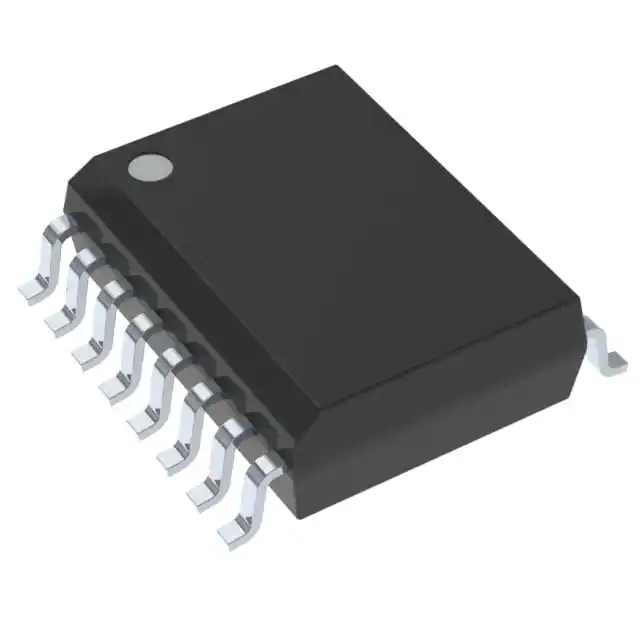
-
PGA2320IDW
Texas Instruments
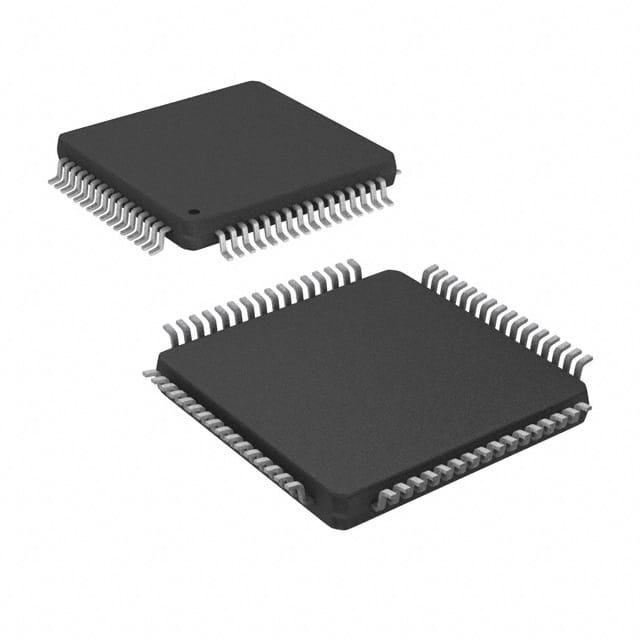
-
SRC4184IPAG
Texas Instruments
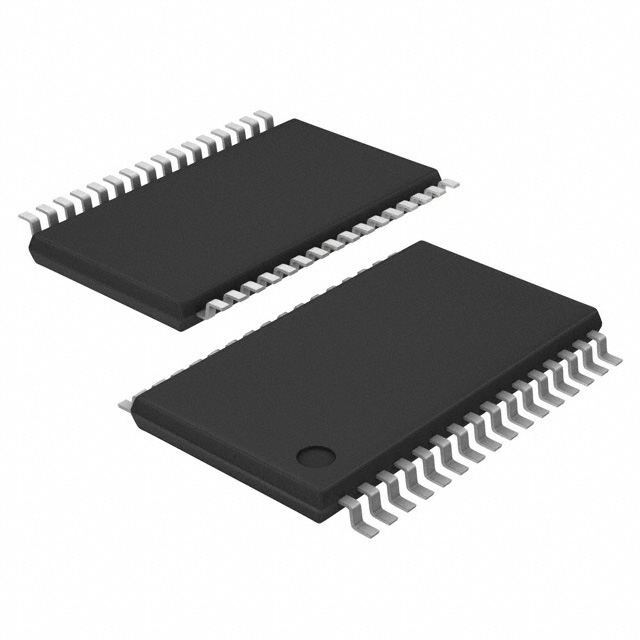
-
MUSES72320V-TE2
Nisshinbo Micro Devices Inc.
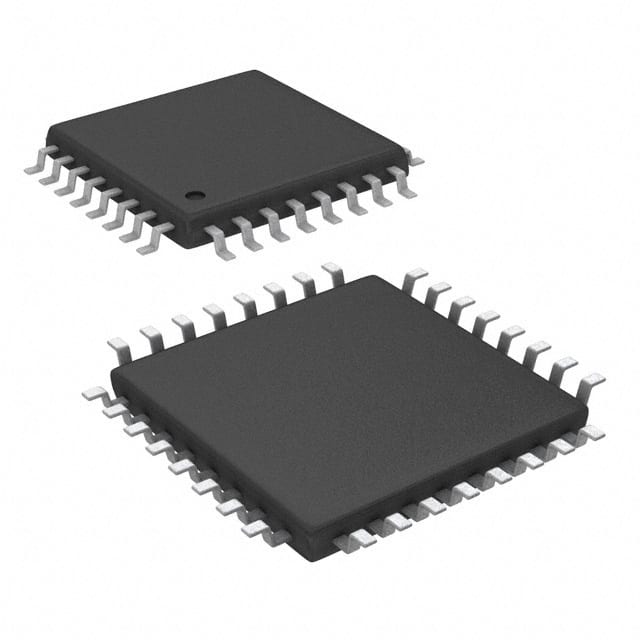
-
PCM2706CPJT
Texas Instruments
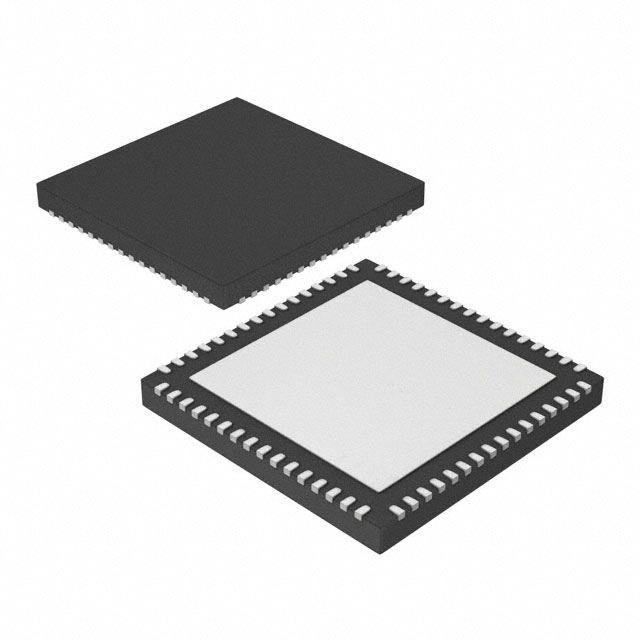
-
ZL38040LDG1
Microchip Technology

-
PGA2310UA/1K
Texas Instruments

- Help you to save your cost and time.

- Reliable package for your goods.

- Fast Reliable Delivery to save time.

- Quality premium after-sale service.







